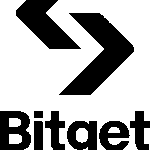A recent phishing attack has raised alarms within the software development community as it compromised one of Node.js’s most notable package maintainers, known as “qix.” This incident unfolded on Monday when qix fell victim to an email masquerading as support from npmjs[.]help, a domain previously linked to a Russian server. The email led to a counterfeit two-factor authentication page hosted on BunnyCDN, where qix unwittingly submitted sensitive information including usernames, passwords, and 2FA codes.
With newfound access, the attacker proceeded to republish several packages, notably chalk and debug-js, injecting malicious payloads into them. These packages, which are integral components in numerous development projects, are downloaded billions of times each week, turning the breach into one of the most significant software supply-chain attacks seen in recent history.
The injected code was relatively straightforward yet effective, manipulating Ethereum transactions by checking for the presence of window.ethereum. When detected, it redirected key transaction functions—such as approval and transfer—to a wallet address controlled by the attacker. Moreover, for users of Solana, the malware disrupted transfers by altering recipient addresses with invalid strings.
Despite the extensive reach of this attack, which potentially affected countless developers and their applications, its financial impact was surprisingly minimal. On-chain analysis indicated that the attacker garnered only a few cents in Ether and approximately $20 worth of a less common memecoin. The Security Alliance’s report highlighted this stark contrast, asserting that while the attack’s scale was vast, the monetary gain was negligible.
On the defensive front, major players such as the popular browser wallet MetaMask reassured their users by declaring they were not affected by the npm supply chain breach. MetaMask employs rigorous security measures, including code version locks, a combination of manual and automated checks, and progressive release updates. Additionally, they utilize advanced tools like “LavaMoat,” which prevents the execution of malicious code, and “Blockaid,” which swiftly identifies compromised wallet addresses.
In light of this incident, Ledger’s CTO, Charles Guillemet, emphasized the need for heightened vigilance, noting that the attack’s payload had merged into packages with extensive download histories intended to silently manipulate wallet addresses in user transactions.
This incident is another reminder of the vulnerabilities present in software supply chains, coming on the heels of other alarming discoveries, such as a recent warning from ReversingLabs regarding npm packages that utilized Ethereum smart contracts to obscure malware links. As the cybersecurity landscape continues to evolve, developers and maintainers are urged to enhance their protective measures to guard against similar threats in the future.







